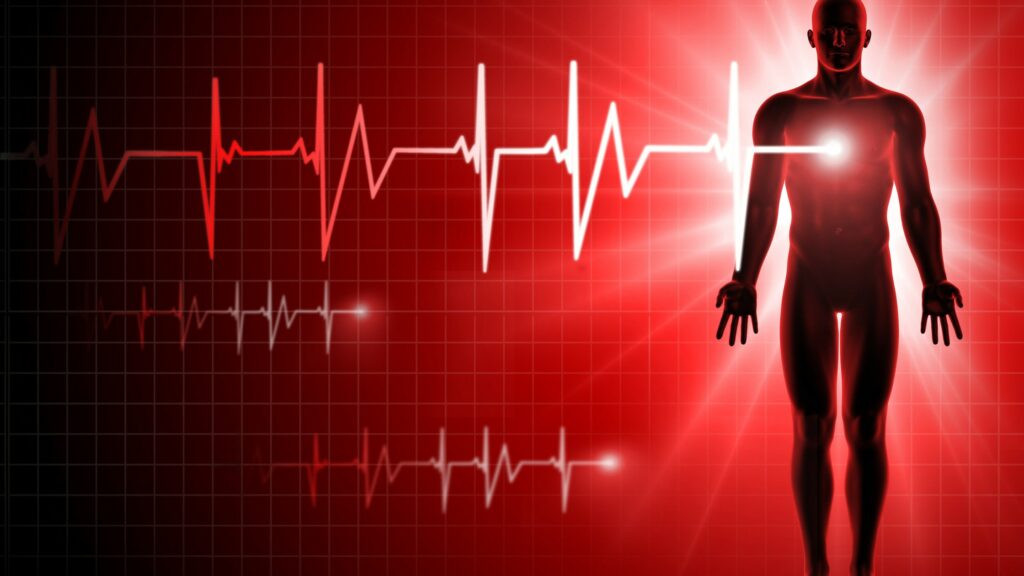In the realm of cardiology, cardiac event recorders (CERs) emerge as invaluable tools for diagnosing and managing arrhythmias, heart failure, and other cardiac conditions. Equipping your practice or facility with the right CER empowers accurate diagnoses, informed treatment plans, and ultimately, improved patient outcomes. This comprehensive buying guide, meticulously crafted for B2B medical device buyers across the globe, aims to illuminate the intricacies of CERs, guiding you towards the optimal choice for your specific needs.
Essential CER Features
- Recording Type: Choose between event recorders (ERs), activated by patients upon symptom occurrence, or implantable loop recorders (ILRs) for continuous monitoring. Consider patient compliance and specific diagnostic needs when deciding.
- Data Storage and Transmission: Prioritize models offering long recording durations (days to weeks for ERs, months for ILRs) and seamless data transmission options like Bluetooth or cellular connectivity for remote monitoring and timely analysis.
- Data Analysis Capabilities: Explore models featuring automated arrhythmia detection algorithms and user-friendly software for efficient data analysis and interpretation, even for non-cardiologists.
- Patient Comfort and Wearability: For ERs, prioritize lightweight and discreet designs for enhanced patient comfort and compliance. For ILRs, consider minimally invasive implantation procedures and comfortable device profiles.
- Regulatory Compliance: Ensure the CER adheres to relevant international regulatory standards for medical devices.
Understanding Key Technologies
- Electrocardiogram (ECG) Recorders: Capture electrical activity of the heart, offering the most comprehensive data for arrhythmia detection. Consider advanced features like multi-lead ECG for detailed analysis.
- Mobile Cardiac Outpatient Telemetry (MCOT): Utilizes cellular networks for real-time data transmission, enabling remote monitoring and intervention in critical situations.
- Insertable Cardiac Monitors (ICMs): Offer a minimally invasive alternative to ILRs, providing continuous ECG monitoring for shorter durations (weeks to months).
Benefits of Using Cardiac Event Recorders in a Clinical Setting
Cardiac Event Recorders (CERs) offer a potent tool for clinicians in diagnosing and managing various cardiac conditions. Beyond their essential role in arrhythmia detection, CERs boast a wide range of benefits that positively impact both patient care and clinical practice. Here’s a closer look:
Improved Diagnostic Accuracy
- Early Detection of Arhythmias: By capturing episodic events that may not manifest during standard ECGs, CERs enable timely diagnosis of arrhythmias like paroxysmal atrial fibrillation or ventricular tachycardia, allowing for prompt intervention and management.
- Identifying Unexplained Symptoms: In patients experiencing palpitations, dizziness, or syncope, CERs provide crucial insights into the underlying cardiac cause, eliminating guesswork and facilitating accurate diagnosis.
- Unmasking Silent Ischemia: For patients with suspected silent ischemia, CERs offer extended monitoring to capture potential arrhythmias or ST-segment changes, guiding risk stratification and treatment decisions.
Enhanced Treatment Strategies
- Guiding Therapy Selection: Analyzing arrhythmia burden and frequency through CER data informs tailored drug therapy or ablation procedures, optimizing treatment effectiveness.
- Monitoring Treatment Efficacy: CERs help assess the effectiveness of antiarrhythmic medications or device therapy by tracking changes in arrhythmia burden and symptom frequency.
- Risk Stratification and Prognosis: CER data reveals valuable insights into a patient’s risk for future cardiac events, aiding in proactive management and preventive strategies.
Patient-Centered Advantages
- Reduced Anxiety and Improved Quality of Life: Knowing the cause of symptoms and receiving effective treatment can significantly reduce patient anxiety and improve their overall quality of life.
- Enhanced Compliance with Treatment Plans: By understanding their arrhythmia patterns and receiving personalized care, patients are more likely to adhere to treatment plans, leading to better outcomes.
- Minimized Invasive Procedures: Non-invasive CERs offer a comfortable alternative to invasive procedures like electrophysiological studies, particularly for patients with high baseline risk.
Clinical Efficiency and Optimization
- Streamlined Workflows: Remote monitoring capabilities of certain CERs reduce the need for frequent in-person appointments, optimizing clinic time and resources.
- Cost-Effectiveness: Compared to more expensive procedures like Holter monitoring, CERs offer a cost-efficient option for long-term cardiac monitoring in specific cases.
Improved - Communication and Collaboration: Real-time data transmission facilitates easier communication and collaboration between cardiologists, primary care physicians, and remote specialists.
It’s crucial to remember that:
- The specific benefits of using CERs depend on the individual patient’s clinical picture and needs.
CERs are not a replacement for other diagnostic tools but should be used in conjunction with a comprehensive evaluation. - Choosing the right type of CER with suitable features is essential for maximizing its benefits in different clinical settings.
- By leveraging the diverse benefits of cardiac event recorders, clinicians can confidently navigate cardiac diagnosis, optimize treatment strategies, and ultimately enhance patient care and outcomes.
- Selecting the Right Cardiac Event Recorder for Your Needs
Leading CER Manufacturers
Maestros Electronics & Telecommunication Systems Limited
Maestros Electronics & Telecommunication Systems Limited introduces the eUNO WiFi, a wireless ECG transmitting device with a 5/12 lead configuration and central monitoring. This innovative device seamlessly transforms any PC, Tablet, or Smartphone into a digital ECG machine, providing automatic interpretation and producing detailed reports printable on A4 paper with a laser printer. Ideal for intensive care, emergency, pediatrics, cardiology, obstetrics, and general medical applications, the eUNO WiFi exemplifies Maestros Electronics & Telecommunication Systems Limited’s commitment to delivering high-quality medical devices that meet global healthcare needs.
With over 20 years of experience, Maestros Electronics & Telecommunication Systems Limited is a leading Indian company specializing in medical device development. Their Mumbai-based development and manufacturing center, supported by a team of 160+ professionals, ensures the eUNO WiFi and other products, including Cardiac Event Recorders, Defibrillators, and Patient Monitoring Systems, meet the rigorous standards of healthcare professionals worldwide. Embrace the future of wireless ECG monitoring with the eUNO WiFi, a testament to Maestros Electronics & Telecommunication Systems Limited’s dedication to advancing medical technology.
Choosing the right CER is just the first step. Proper maintenance, staying informed about advancements, and prioritizing patient engagement are crucial for optimizing performance and empowering exceptional cardiac care, one heartbeat at a time. Let this guide be your launchpad, and together, let’s create a symphony of improved patient outcomes globally.
Disclaimer: This buying guide provides general information and should not replace professional advice and guidance.
